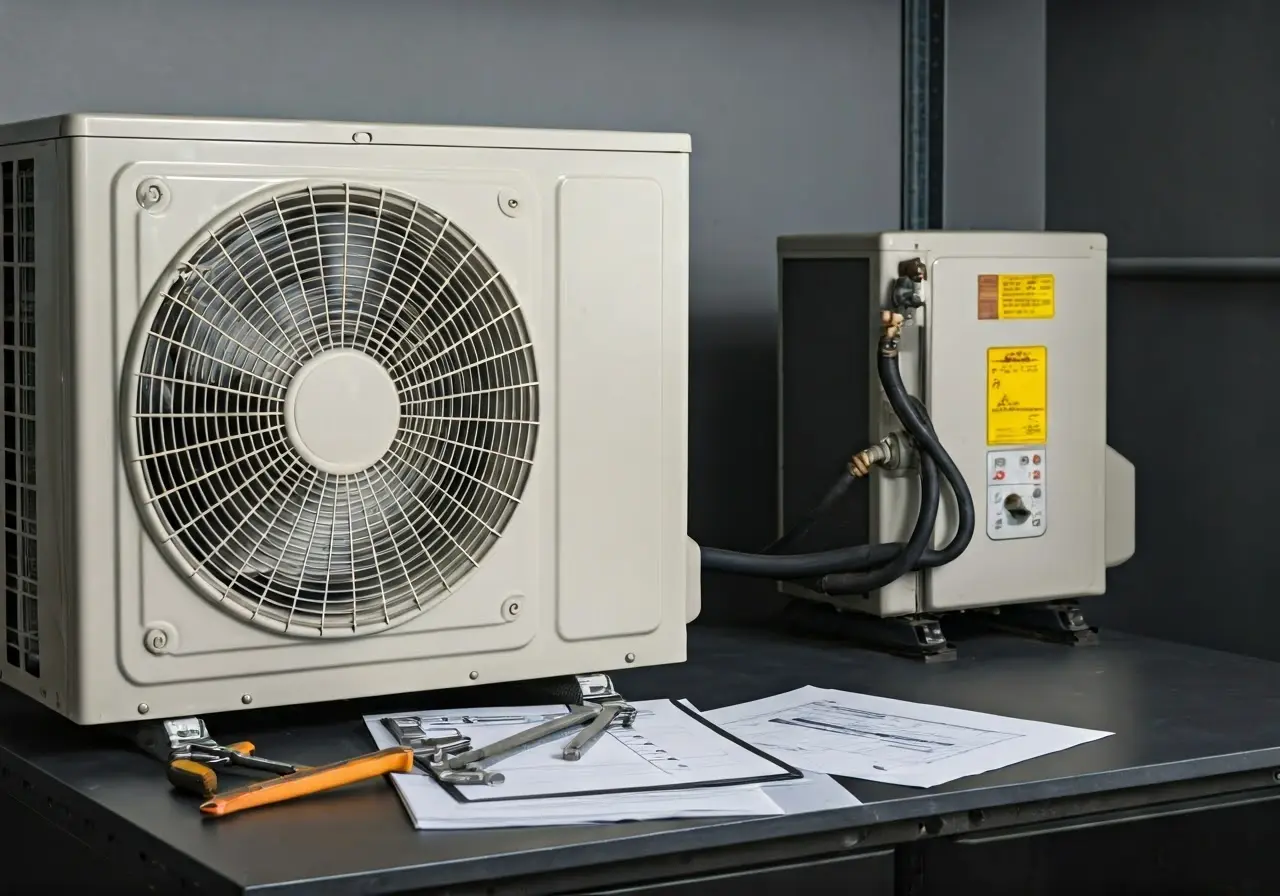Living in Calhoun, you’re no stranger to sizzling summers. When the heat is on, your AC system is your best friend. It’s crucial to keep it running smoothly to avoid any unexpected breakdowns. Here are some simple yet effective tips to maintain your AC system, ensuring you stay cool all season long.
1. Regularly Change the Air Filters
Air filters play a crucial role in keeping your AC efficient. They trap dust, dirt, and allergens, preventing them from circulating in your home. Aim to change them every one to two months, especially during peak usage periods.
A clogged air filter can lead to a cascade of problems, from ice forming on the coils to the system overworking itself. This not only reduces the effectiveness of your cooling but also strains your air conditioning unit over time. Moreover, clean air filters contribute to better indoor air quality, which is essential for a healthy home environment. Make it a habit to mark your calendar to check the filters regularly. Consider using high-efficiency particulate air (HEPA) filters if you’re prone to allergies—they do an excellent job of capturing even the smallest particles.
2. Keep the Coils Clean
Over time, dirt accumulates on the coils inside your AC unit, affecting its efficiency. Regularly inspect and clean the coils to ensure optimal cooling performance and energy efficiency.
Both the evaporator and condenser coils play vital roles in the cooling process of your air conditioner. When these coils are covered in dirt, they can’t effectively release or absorb heat, impeding your AC’s ability to cool your home. Using a soft brush to gently clean these coils or hiring a professional for a more thorough job can save your system from premature wear. Furthermore, maintaining clean coils often means your system consumes less energy, which can positively impact your energy bills over time.
3. Ensure Proper Fan Settings
Adjust your fan settings to auto mode, allowing the fan to run only when the AC is actively cooling. This practice not only conserves energy but also prolongs the lifespan of your cooling system.
While it might seem like a small adjustment, setting your fan to ‘auto’ rather than ‘on’ can make a significant difference. This ensures that the fan doesn’t run continuously and prevents unnecessary wear. Moreover, having the fan rest when not needed helps maintain a consistent temperature across your home. If you’re someone who enjoys a constant breeze, consider using standalone fans in conjunction with your AC unit for better airflow without overworking the central system.
4. Check and Clean Vents
Blocked vents can significantly impact your AC’s efficiency. Regularly check your home’s vents to ensure they’re free of dust, debris, and obstructions, allowing for optimal airflow.
One often overlooked aspect of maintaining effective airflow is ensuring that your home’s vents are unobstructed. This includes not just cleaning away dust but also ensuring furniture or curtains aren’t blocking the vents. A clear path allows your AC to distribute cold air much more evenly. You might be surprised to find that rearranging furniture can greatly enhance the cooling efficiency of your system. Additionally, using a vacuum with a brush attachment can help keep vents free from settled debris, further improving air circulation throughout your home.
5. Schedule Annual Professional Maintenance
Investing in a yearly professional inspection ensures your AC is in top shape. A qualified technician can spot potential issues before they become major problems, saving you time and money in the long run.
During a professional maintenance check, a trained HVAC technician will inspect components you may overlook. This includes checking refrigerant levels, inspecting electrical connections, and verifying that all internal parts are functioning correctly. These preventive measures are crucial to extending the lifespan of your AC unit. Regular tune-ups can also improve your system’s efficiency, leading to lower energy bills, and provide peace of mind knowing that your unit won’t fail during the hottest days of summer. Many services offer annual maintenance plans, often at a discounted rate, making them a cost-effective option for homeowners aiming to avoid emergency repairs.
6. Inspect the Thermostat Settings
A well-functioning thermostat is key to efficient cooling. Regularly check your thermostat settings to ensure they reflect your current lifestyle and preferences for maximum comfort.
In relation to smart thermostat options, you can optimize your AC system for energy efficiency by automating temperature adjustments based on your schedule. If manual settings are more your style, ensure you set the temperature slightly higher when you’re away from home. This reduces the load on your system and can result in significant cost savings over time. Also, check the thermostat’s calibration regularly to ensure it accurately reflects your home’s temperature. Depending on its placement, direct sunlight or drafts can also cause incorrect readings, leading to inefficient operation.
7. Sealing and Insulating Your Home
Proper sealing and insulation can keep the cool air inside and reduce the workload on your AC. Check doors, windows, and ductwork for leaks and seal them to enhance efficiency and lower energy bills.
Effective insulation minimizes the exchange of indoor and outdoor air, helping your AC maintain your desired temperature with less effort. Look for cracks around window frames or door weatherstrips that may need replacing. Utilizing products like draft stoppers can prevent cool air from escaping through gaps. Likewise, ensuring that your attic and walls are well-insulated will deliver better overall climate control. You can also explore the benefits of thermal curtains, which provide an extra layer of insulation and are especially beneficial in rooms that receive a lot of sunlight.










